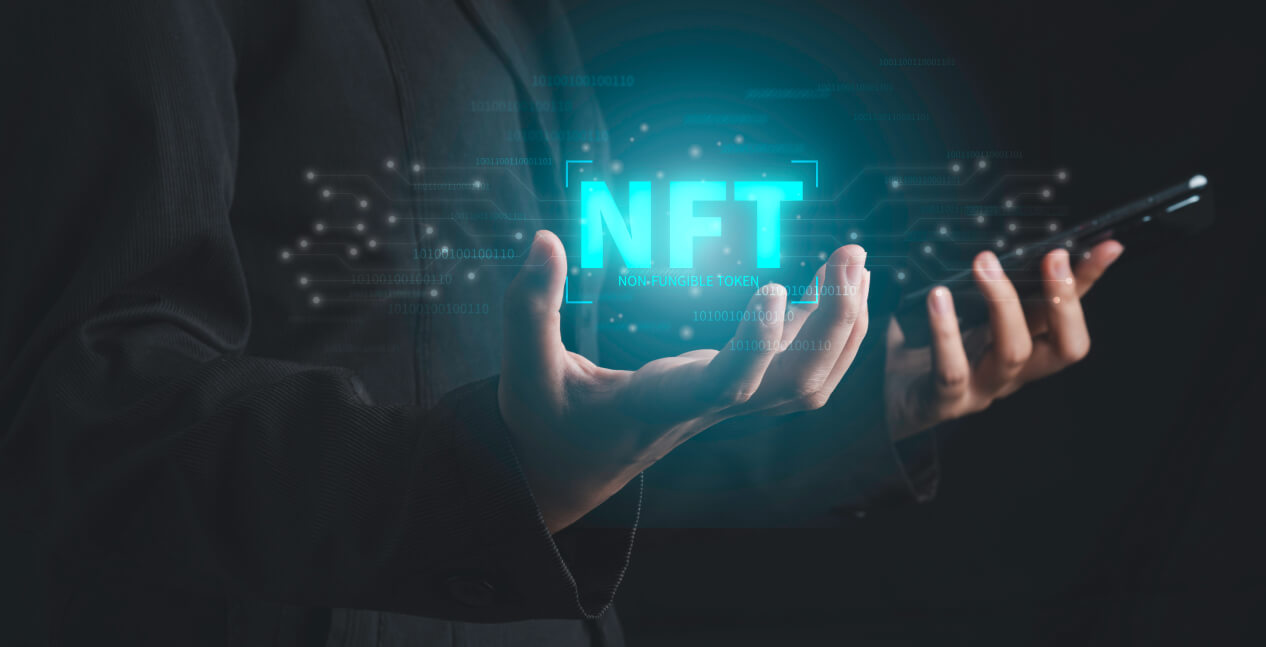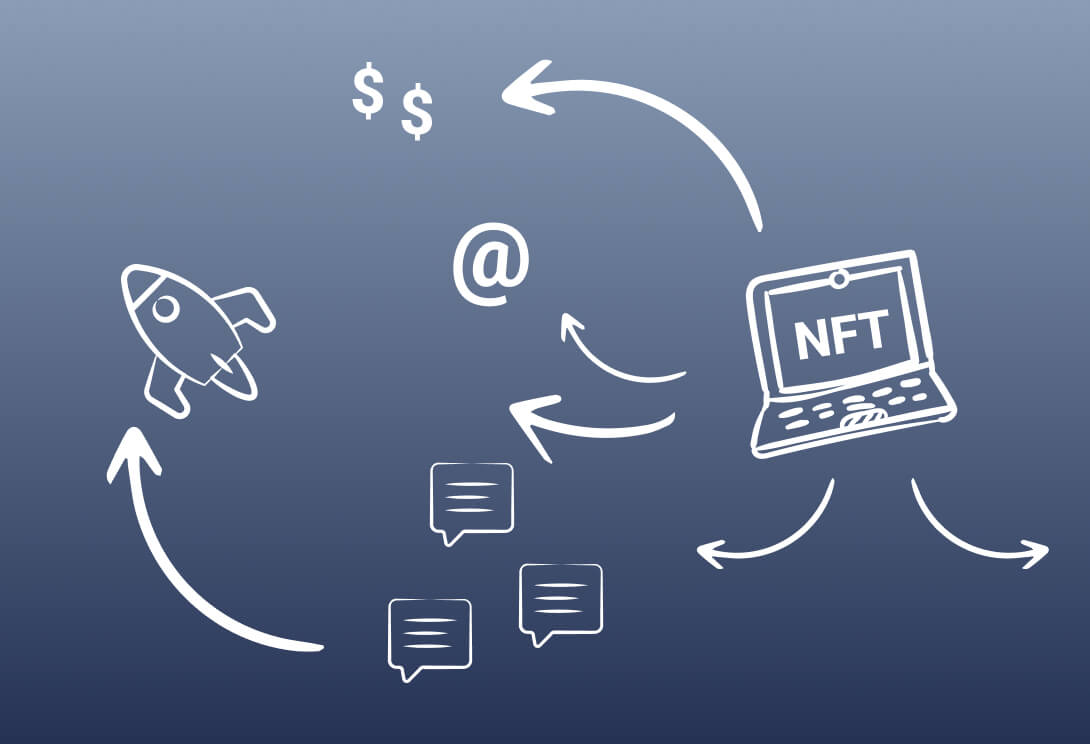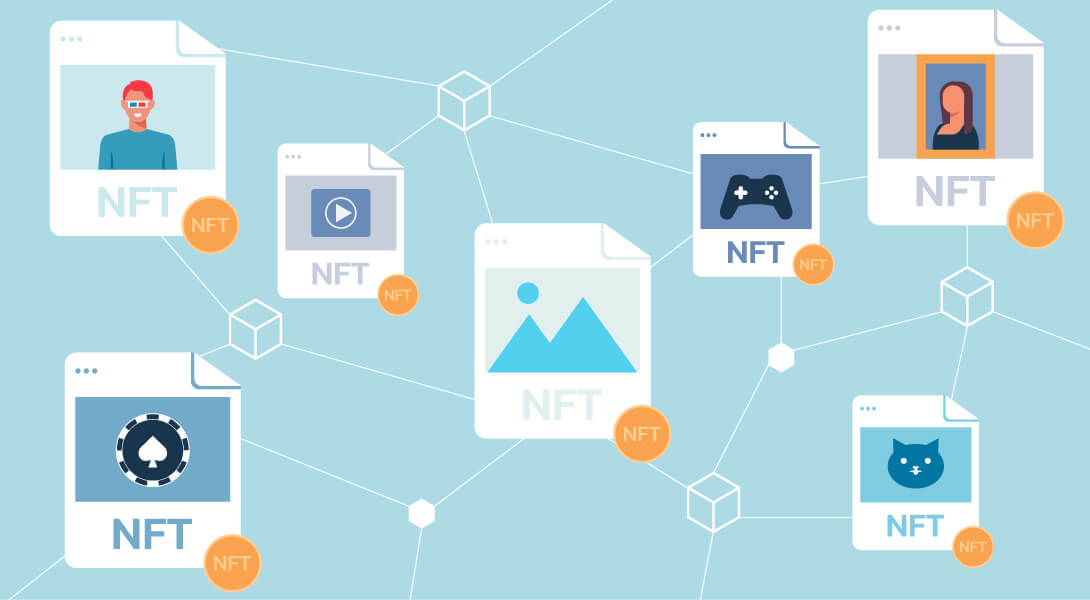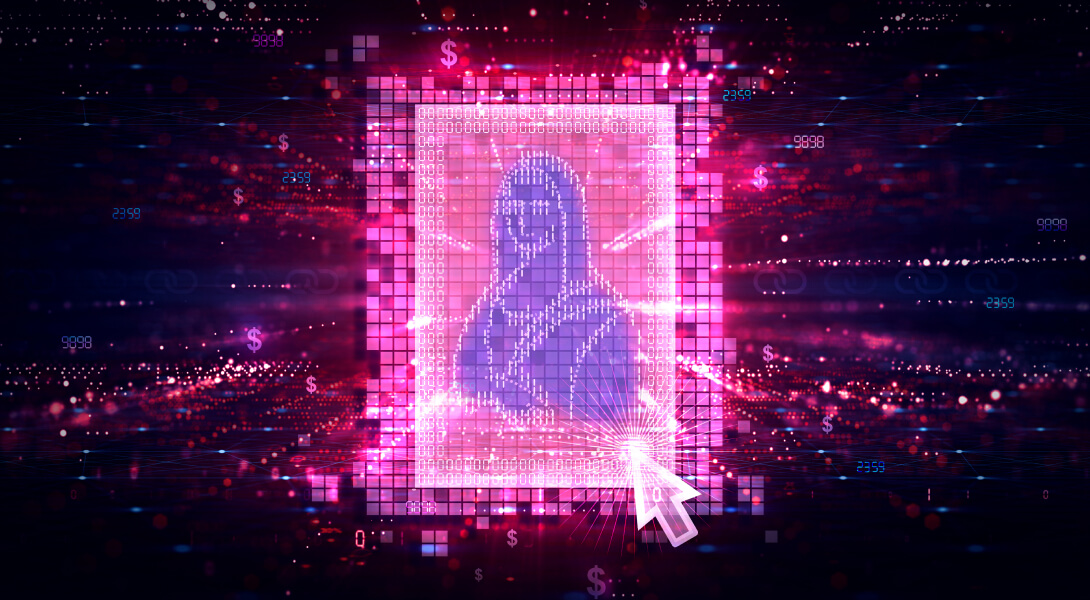With every year passing, the digital world evolves. The technological phenomenon is gaining new heights and is still growing into something everyone can recognize. In recent years, numerous advancements have been made, and significant progress holds the digital space’s bag of tricks: NFT technology. This superior technology is presently paving the path for this year’s different NFT development services and new business concepts. Let’s see what NFTs are and how they work.
What is an NFT?
What does NFT mean? Non-fungible tokens (NFTs) are blockchain-based cryptographic assets having unique identifying codes and metadata that differentiate them from others. They can never get sold or traded for equivalency, just like cryptocurrencies. This is in distinction to fungible tokens, like cryptocurrencies, which are identical to one another and can be utilized for exchange.
NFTs, on the other hand, are a different matter. They are one-of-a-kind works that are recorded on a blockchain and hence cannot be altered or duplicated. As no two NFTs are alike, they cannot be traded one for one like fungible tokens or bank notes. Writers of artwork or different digital copies create NFTs, which serve as the only verifiably actual arrangement of the work, with all other copies serving as copies only.
How does an NFT works
Let’s see how do NFTs work –
NFTs are reserved on a Blockchain. It is a decentralized public ledger that keeps track of transactions. Most people are familiar with Blockchain as the underlying technology that allows cryptocurrencies to exist. NFTs are most commonly kept on the Ethereum Blockchain, although they can also be held on other Blockchains.
Many of the NFTs are a part of the Ethereum Blockchain. For example, Ethereum, Bitcoin and Dogecoin are types of Cryptocurrency. Whereas its Blockchain also enables these NFTs, which store additional information that allows them to function differently from an ETH coin. It’s worth mentioning that various Blockchains can use NFTs in their own ways.
NFTs are different from ERC-20 tokens like DAI and LINK in that per token is unique and cannot be divided. NFTs qualify for the assignment or claim of ownership of any individual piece of digital data. This can be tracked using Ethereum’s blockchain as a public ledger. As a digital or non-digital asset representation, an NFT is created from digital items.
The copyright or license rights may or may not come with the purchase, depending on the NFT. However, this is not always the case. Purchasing a limited-edition print does not imply that you have exclusive rights to the image.
What are NFTs used for?
Some of the best use-cases are defined below –
Artists and content originators have an opportunity to monetize their work. All appreciations are for NFTs and the emerging Blockchain technology. Artists are not required to sell their work through galleries and auction houses. Rather than, the artist can market it as an NFT straight to the consumer, letting them hold a more substantial amount of the profit.
Additionally, artists can integrate royalties into their software to receive a share of sales when their piece of work is traded to a fresh proprietor. This is a good feature because most artists do not receive subsequent proceeds after their first sale. Talking about both real words and virtual, the use of NFTs can be done for marketing digital real estate.
Talking about de-central and games, digital real estate apps are getting more and more attention in the virtual world. Talking about the virtual world, then in this world, participants opt for constructing and buying spaces. The real owners, as well as creators of the particular objects, can be identified using NFT.
Authenticating products, assuring their quality, and validating their provenance are the primary functions of NFTs in the supply chain. NFTs on Blockchain are suited for logistics applications because of their immutability and transparency, which keeps supply chain data valid and dependable, despite their early stages. Knowing where items have gone and for how long is critical in the food and other perishable industries.
Top 5 NFT business ideas for startups
People always wonder what NFTs are used for. Below is the list of the top 5 NFT business ideas where NFT can make a huge contribution.
1. NFT for Art
The art industry has been present for ages in our world. This business has embraced the NFT notion for technology enhancement to capture all corners. Traditionally, the artwork has been sold to consumers via auction houses. The cost of the agent is a basic disadvantage in the art trading area. The overall cost is excessive and creates uncertainty in between the parties that are involved in this.
Embracing the concept of NFT development is a mere strategic effort for people who want to evolve a business in the art industry. It permits the transformation of artworks into digital performances and the minting of NFTs via marketplaces. The involvement of intermediaries is thereby eliminated, offering total ownership to the buyer and providing significant future incentives.
2. Create a white label NFT service
White label can be defined as it is the process of extracting the identities of the brand of the manufacturer and replacing them with the brand names and logos of the retailers. Small businesses that resell the Chinese items on different platforms such as Shopify often engage in the behavior. NFT services can get benefits from similar methods. The idea covers plug and play white label abilities; you do not have to build such a platform from the ground using NFT services.
3. Go for building an NFT investment firm
Despite the fact that non-fungible tokens offer a new way to diversify your investment portfolio, there are plenty of deep-pocketed investors looking to put their money into something new, innovative, and exciting—like non-fungible tokens. Remember that folks are busier than they’ve ever been. Most people do not have this much time to spend all day studying the NFT market. That’s where you, the NFT investment business, come in.
Investors offer you the money which they hold in exchange for your expertise in searching on the NFTs and hoping for a positive return on the investment. In that case, you will get a small amount of the overall earnings in exchange for your services and it is like a good deal. If you are enthusiastic about the whole NFT market then knowing all about it is never a bad choice. Holding this thing in your mind is also beneficial for you.
4. NFT for Sports
Sports has leveraged the digital arena by selling goods like sports memorabilia, achievements, trading cards, short videos, etc. All these assets get converted to NFTs and sold on different exchanges. NBA Top Shot is the popular NFT marketplace that trades NBA-related NFT on Flow Blockchain. The best idea is to begin a new business in the sports industry. The approach of the sports industry is to assist different companies climbing via the digital world and building them as a top digital model.
5. NFT in Metaverse
The word “metaverse” has recently gained a lot of traction. The NFT technology certifies the elevation of this platform. People who want to experience the enchantment of the metaverse might consider starting a business on this platform. As a result, running a business on this platform is extremely distinctive and novel. As a result, the business platform generates a large quantity of profit.
Conclusion
NFTs (Non-fungible tokens) are present around the world for a longer period of time and they are not moving anywhere shortly from the market. Just like the crypto technologies, NFT services hold a variety of apps and their utility will boost with time. The increasing number of digital creators and celebrities are looking to retaining on the online platforms and looking to increase their whole value.
COMMENT
No Comments found.
DETAILED INDUSTRY GUIDES
Software Development - Step by step guide for 2021 and
beyond | OpenXcell
Learn everything about Software Development, its types, methodologies, process outsourcing with our complete guide to software development.
Headless CMS - The complete guide for 2021 | OpenXcell
Learn everything about Headless CMS along with CMS, its types, pros & cons as well as use cases, and real-life examples in a complete guide.
Mobile App Development - Step by step guide for 2021 and beyond | OpenXcell
Building your perfect app requires planning and effort. This guide is a compilation of best mobile app development resources across the web.
DevOps - A complete roadmap for software transformation | OpenXcell
What is DevOps? A combination of cultural philosophy, practices, and tools that integrate and automate between software development and the IT operations team.
GET QUOTE
INSIGHTS INTO TECH
The inception of ChatGPT in 2022 marked the wide-scale adoption of Artificial Intelligence in application development. In the field of creating mobile apps, AI-powered tools and frameworks have become indispensable…
Read more...
Introduction Most industries have turned to AI to stay ahead of the competition in the evolving tech landscape. The construction industry is no stranger to this trend. The advent of…
Read more...
Introduction Digital transformation needs no introduction; it is evolving as a norm in many industries. The paradigm transition it brings to the retail landscape is evident from the latest predictions.…
Read more...












